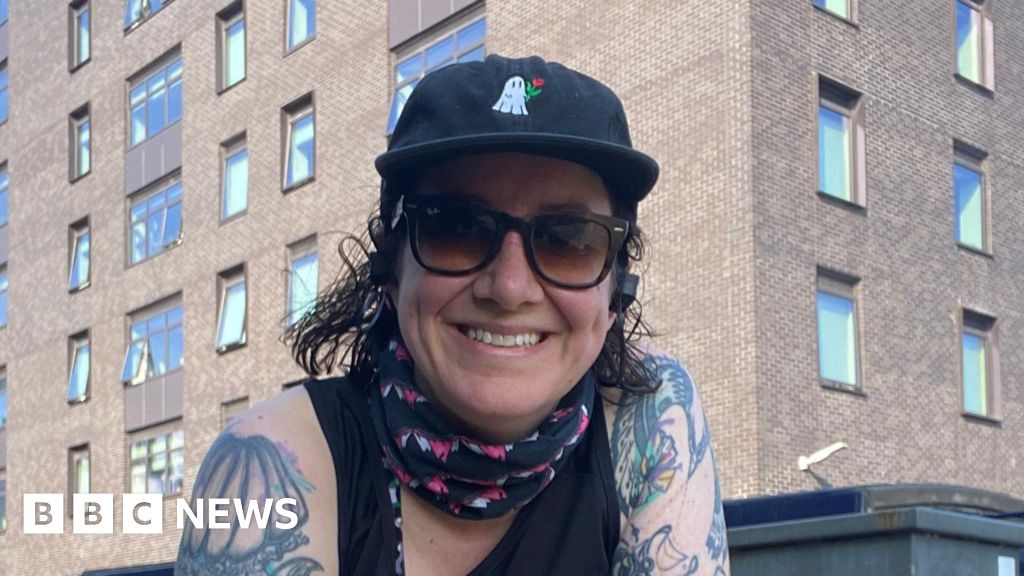Rumeana JahangirNorth West
 Hannah Cox
Hannah CoxA woman says a “series of serendipitous events” led her to attempt 100 marathons in 100 days across South Asia in memory of her father.
Hannah Cox, whose Anglo-Indian ancestors worked for the British East India Company, said she had been “obsessed” with wanting to travel a 4,200km route used by the British to implement a controversial salt tax during its rule over India, ever since she read about it in 2014.
She initially planned to follow it in vehicles but, after taking up running on reaching 40 last year, she decided to run the route on consecutive days, starting in October, as a way to “change the narrative” to help businesses “be a force for good”.
Ms Cox, who lives on a canal narrowboat in Tameside, Greater Manchester, said she enjoys long adventures, having travelled overland from the UK to Bhutan in 2017.
But it was the death of her Kolkata-born father Deric in 2011 that increased her interest in India.
While he was born in the country, the family are thought to have moved there from Europe, with many of them working for the British East India Company – considered one of the most powerful corporations in history.
 Hannah Cox
Hannah CoxHe had moved to the UK in the 1960s and his daughter said she was “always fascinated by the fact my dad came from a different country”.
“I didn’t know much about the history, we didn’t learn much about it growing up,” she said.
“And it was when my dad died in 2011, I really felt that disconnect of cultural identity with the Indian side of the family.”
The 41-year-old, who visited her family’s historic homes in India in 2017, said she is “really against a lot of the values” behind the East India Company, which relied on the work of enslaved people and financial exploitation.
 Getty Images
Getty ImagesShe hopes her marathons can trigger conversations about a little-known boundary in India that was used to tax and restrict the movement of salt from coastal areas to British-controlled states.
The salt tax, which meant many Indians could not afford the basic ingredient, later prompted the lawyer and activist Mahatma Gandhi to set off on a march in 1930 in protest against British rule.
Ms Cox hopes to raise £1m for the business network 1% for the Planet to support firms develop sustainable practices.
She continued: “It’s not about making people feel bad for the choices they’re making, but making them feel empowered to make better choices.
“It’s easy to blame everything else for stuff but we need to look at where we can, as individuals, make a difference and this is just my way to make a difference.”
 Getty Images
Getty ImagesShe said that, in addition to “showing businesses how they can be a force for good”, she hopes the marathons will be an “opportunity to have an adventure and to see how far I can push myself and hopefully inspire other people to think”.
Ms Cox, who has the spinal condition scoliosis, has built up her strength by running the width of England during a week this June.
She has been exercising before and after work and will undertake specialist training before flying to India in October, where she plans to run through Delhi and near the Taj Mahal on her way across the vast country towards her father’s home in West Bengal.
“It will still be quite hot but I’ve been told by a lot of my contacts in India that it’ll be the coolest time to run.
“I find it’s really good for my mental health. It’s such a good way to connect with nature.”






